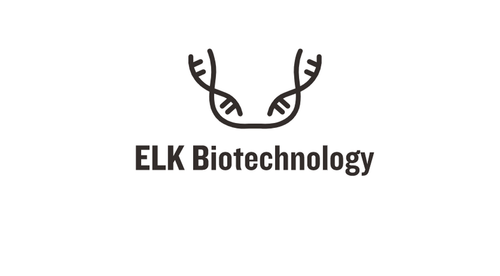Product Description
Rat Protein C/autoprothrombin IIA/coagulation factor XIV (PROC/FXIV) ELISA Kit | KTE100417 | Abbkine
Application: This Rat Protein C/autoprothrombin IIA/coagulation factor XIV (PROC/FXIV) ELISA Kit employs a two-site sandwich ELISA to quantitate PROC in samples. An antibody specific for PROC has been pre-coated onto a microplate. Standards and samples are pipetted into the wells and anyPROC present is bound by the immobilized antibody. After removing any unbound substances, a biotin-conjugated antibody specific for PROC is added to the wells. After washing, Streptavidin conjugated Horseradish Peroxidase (HRP) is added to the wells. Following a wash to remove any unbound avidin-enzyme reagent, a substrate solution is added to the wells and color develops in proportion to the amount of PROC bound in the initial step. The color development is stopped and the intensity of the color is measured.
Detection Method: Colorimetric
Conjugate: N/A
Sample Type: Cell culture supernatants#Serum#Plasma#Other biological fluids
Assay Type: Multiple steps standard sandwich ELISA assay with a working time of 3-5 hours. It depends on the experience of the operation person.
Kit Component: • Rat Protein C/autoprothrombin IIA/coagulation factor XIV microplate
• Rat Protein C/autoprothrombin IIA/coagulation factor XIV standard
• Rat Protein C/autoprothrombin IIA/coagulation factor XIV detect antibody
• Streptavidin-HRP
• Standard diluent
• Assay buffer
• HRP substrate
• Stop solution
• Wash buffer
• Plate covers
Features & Benefits: Rat Protein C/autoprothrombin IIA/coagulation factor XIV (PROC/FXIV) ELISA Kit has high sensitivity and excellent specificity for detection of Rat PROC. No significant cross-reactivity or interference between Rat PROC and analogues was observed.
Calibration Range: Please inquire
Limit Of Detection: Please inquire
Usage Note: • Do not mix components from different kit lots or use reagents beyond the kit expiration date.
• Allow all reagents to warm to room temperature for at least 30 minutes before opening.
• Pre-rinse the pipet tip with reagent, use fresh pipet tips for each sample, standard and reagent to avoid contamination.
• Unused wells must be kept desiccated at 4 °C in the sealed bag provided.
• Mix Thoroughly is very important for the result. It is recommended using low frequency oscillator or slight hand shaking every 10 minutes.
• It is recommended that all samples and standards be assayed in duplicate or triplicate.
Storage Instruction: The unopened kit should be stored at 2 - 8°C. After opening, please store refer to protocols.
Shipping: Gel pack with blue ice.
Precaution The product listed herein is for research use only and is not intended for use in human or clinical diagnosis. Suggested applications of our products are not recommendations to use our products in violation of any patent or as a license. We cannot be responsible for patent infringements or other violations that may occur with the use of this product.
Background: Protein C is a major physiological anticoagulant. It is a vitamin K-dependent serine protease enzyme (EC 3.4.21.69) that is activated by thrombin into activated protein C (APC) . The activated form (with protein S and phospholipid as a cofactor) degrades Factor Va and Factor VIIIa. It should not be confused with C peptide or c-reactive protein or protein kinase C.The protein C pathway’s key enzyme, activated protein C, provides physiologic antithrombotic activity and exhibits both anti-inflammatory and anti-apoptotic activities. Its actions are related to development of thrombosis and ischemic stroke. The protein C pathway of the coagulation of the blood involves the influences of lipids and lipoproteins and the study of the strong epidemiologic association between hyperlipidemia and hypercoagulability.
Alternative Names: PROC; APC; PC; PROC1; anticoagulant protein C; autoprothrombinA; blood coagulation factor XIV; protein C; vitamin K-dependent protein C
Search name: PROC; APC; PC; PROC1; anticoagulant protein C; autoprothrombinA; blood coagulation factor XIV; protein C; vitamin K-dependent protein C
Tag: PROC
 Euro
Euro
 USD
USD
 British Pound
British Pound
 NULL
NULL












